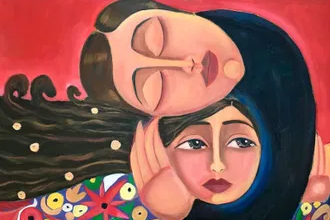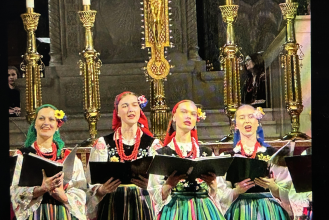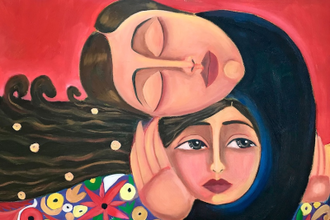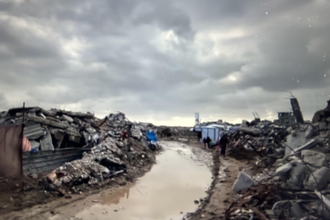Book: Rethinking gender in revolutions and resistance
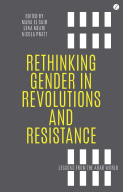
RETHINKING GENDER IN REVOLUTIONS AND RESISTANCE: lessons from the Arab world
Said, Meari and Pratt. Zed Books, London
Who can forget the way the Egyptian military stripped and humiliated the young female demonstrator who came to be known as the girl in the blue bra? During the Arab Spring women were often in the front lines, risking their lives to overthrow corrupt regimes. Yet, since then, they have mostly been pushed back into more traditional female roles. This book of essays examines how women have fought to have a voice in nations in transition. It challenges the idea that women can either be submissive Muslims or secular feminists.
It opens with a moving account of how Palestinian women have withstood sexualised torture and rape by the Israeli Security Agency, without breaking during interrogation. "I didn't perceive my body as my own body: it was the body of all Palestinian Arabs and all those oppressed," says a 24-year-old "struggler" against what she sees as "Zionist colonialism." "The experience hardened and strengthened me," says a nineteen-year-old.
The Israeli interrogators had hoped that traditional Muslim cultural sensitivity would break the young women through the shame and stigma that rape would bring, but the women re-framed the experience as one in which they represented all Palestinians resisting injustice. The author warns us not to subject all Muslim women to Orientalism, casting them as passive and backward. Yet, unfortunately, she does not acknowledge that these women do face stigma and rejection when they return to Palestinian society, despite their bravery. In other words, the West's Orientalist caricature of some Muslim men is depressingly accurate.
Several chapters recount the 2011 Egyptian revolution in which the media and many Egyptians placed the blame on women who were assaulted, rather than the soldiers abusing them. As a general told CNN, "The arrested women were not like your daughter or mine. These were girls who camped out in tents with male protesters."
Women who would not stick to the traditional script of female immobility and silence were hauled off for "virginity tests." Yet, many of those demonstrating believed the New Egypt would embrace the New Woman. Instead, women are still bearing the burden for their entire family's "honour," where men decide how women dress, when they leave the home and when they conceive.
The most illuminating chapters are about Libya and Tunisia. Gaddafi certainly widened opportunity for women, signing and ratifying numerous international conventions of gender equality, in part to appear modern. Yet, women who had been raped in Gaddafi's Libya could expect to be held responsible, sent for social rehabilitation. The growing Wahhabist Islamist movement in Libya, funded by the Saudis, cleverly linked women's rights with immoral, alien, un-Islamic Western ways, meaning that when Gaddafi fell, gender equality went with him. Now, Muslim women campaign in favour of repealing their equal rights, and in favour of allowing men to beat them whenever they please. Restrictions on polygamy have been reversed, and women are hounded out of public life. Female members of Parliament, only present because the West insisted their seats were guaranteed in the new constitution, find the microphone is cut when they speak. A female professor being driven by her chauffeur is stopped and attacked for traveling with a man who is not her "guardian."
Meanwhile in Tunisia secular feminists and women active in Islamic charities struggle to find common ground in helping economically marginalised women. Again, the Islamists portray the Westernisation imposed by the previous regime as culturally inauthentic and illegitimate. Women therefore have to decide how far to engage with political Islam so the interpretation of Islam is not left to extremists.
This volume is invaluable to those interested in how women are struggling to find a public space in the Muslim world.



